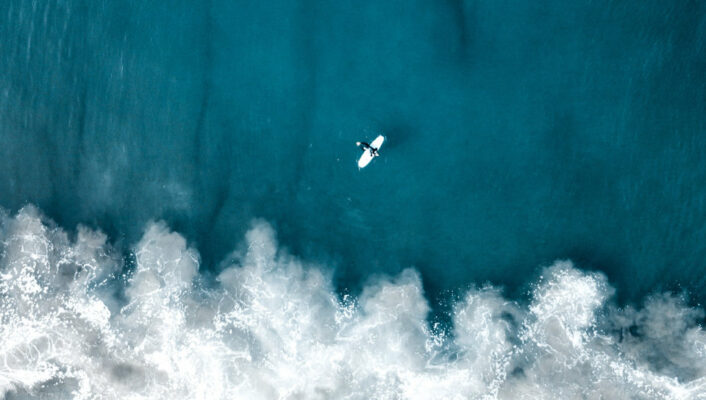Hub researchers moderate Virtual Early Career Ocean Professional (VECOP) Day for the UN Decade of Ocean Science

Hub researchers Kelsey Archer Barnhill and Payal Nandini Maharaj have been selected to moderate the Virtual Early Career Ocean Professional (V.ECOP) Day that will start on June 1st, 2021, as a 24-hour livestream event following the sun around the world. The V.ECOP Day will be directly linked to the kick-off conference of the UN Decade of Ocean Science for Sustainable Development that will be held on June 1st, 2021. The event will promote a sustainable ocean and initiate an exchange of views and ideas with people around the world.
“I am excited for the opportunity to moderate Timeslot 1, which focuses on early career professional’s contributions to the UN Decade of Ocean Science for Sustainable Development across the Eastern Atlantic Ocean. I am happy to represent One Ocean Hub early career researchers at this kick-off event”
Kelsey Archer Barnhill
“The Pacific Ocean is the largest Ocean of the world which means tackling challenges associated with the climate crisis requires a collaborative and transdisciplinary approach. Being selected as a moderator for the VECOP Day, which is an officially endorsed UN Ocean Decade activity, enables Early Career Researchers like me to voice our concerns to the global ocean professionals”
Payal Nandini Maharaj
Promoting a sustainable ocean and advancing dialogues in this issue is at the heart of the One Ocean Hub’ contribution to the UN Decade of Ocean Science. All the One Ocean Hub research programmes support the achievement of a sustainable ocean, share knowledge and connect dialogue with a broad spectrum of stakeholders (summarised below).
Dialogue events: Bringing together stakeholders to co-define challenges and co-develop potential solutions. The Hub for instance, collaborates with the UN Division for Ocean Affairs and the Law of the Sea to deliver a training session on Pilot Series on Science for Ocean Sustainability for the UN Nippon Fellows and Alumni, the majority of whom are government officials from low and middle income countries. The pilot series discuss about varied and relevant ocean science, science and policy interfaces, and the challenges in data Collection, access and use to mention a few.
Responsive research and capacity projects: Supporting capacity and institutional strengthening through seed research or knowledge exchange projects. The Hub, for example, has established the Coastal Justice Network (CJN) in South Africa, bringing together small-scale fisheries leaders from 13 cooperatives and other fisher organisations to improve fishers’ access to decision-making process. The CJN enables the small-scale fisheries leaders to work together with researchers, local civil society organisations and legal professionals, and gain the support that they need.
Our Empatheatre production, Lalela Ulwandle, aimed to broaden public dialogue around ocean decision making in South Africa, particularly along the KZN coastline – an area targeted in blue economy developments. Lalela uLwandle (Listen to the Sea) is a research-based theatre performance and public dialogue event that explores how we may build just and equitable processes in ocean governance. Through a 6-town tour, and associated media coverage, Lalela reached an audience of over 170,000, sparking a regional conversation on the intersection of tangible and intangible heritage and economic development. An interview with an Empatheatre researcher on national radio, led to the “For Water for Life” podcast episode on another media outlet (The Daily Maverick).
To improve education for youth and wider citizen, we have developed our ocean literacy programme. Under the Hub, the Mzansea project is co-developing with the Marine Coastal Educators Network a suite of ocean literacy resources for implementation by network members. In the Solomon Islands we also have, the ‘Our Ocean: Our Identity’ project aims to showcase gendered conceptions of the ocean in Melanesian contexts through public art, to foreground cultural heritage and indigenous identity in ocean dialogues. Our youth partners, the Pacific Islands Students Fighting Climate Change, are working with primary school teachers in Western Province to develop a challenge-led ocean education programme which integrates Pacific culture, indigenous knowledge, and science.

Kelsey Archer Barnhill 
Payal Nandini Maharaj